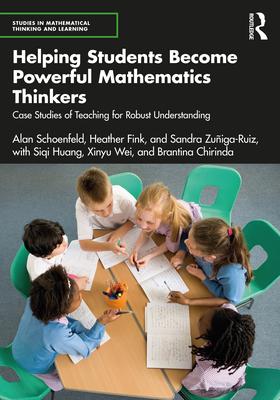This book supports teacher educators, teachers, coaches, administrators, math-ed faculty, and researchers in understanding and using the Teaching for Robust Understanding (TRU) Framework to improve instruction. Detailed case studies take readers on deep dives into five essential dimensions of classroom practice: The Mathematics; Cognitive Demand; Equitable Access; Agency, Ownership, and Identity; and Formative Assessment.
Three case studies form the core of the book. Each case uses the TRU framework to pose conversational questions to the reader on different aspects of the lessons, focusing on the ways that students are led to engage with mathematics and how they make sense of it. These include "What's important in this classroom episode?," "What might students be experiencing?," or "What might the impact of alternative teaching decisions have been in this situation?". The book concludes with guides for planning, observation, and reflection that readers can use in their own work, continuing the journey toward the ambitious and equitable instruction that each case study describes.
This book will support all mathematics educators in developing deeper understandings of mathematics classrooms and in problematizing their own mathematics instruction. By exploring the challenges students face, the decisions teachers make, and the ways that students learn, readers will experience TRU as a powerful way of thinking about instruction - one that can shape lesson planning and reflection and make teaching more impactful and equitable.
